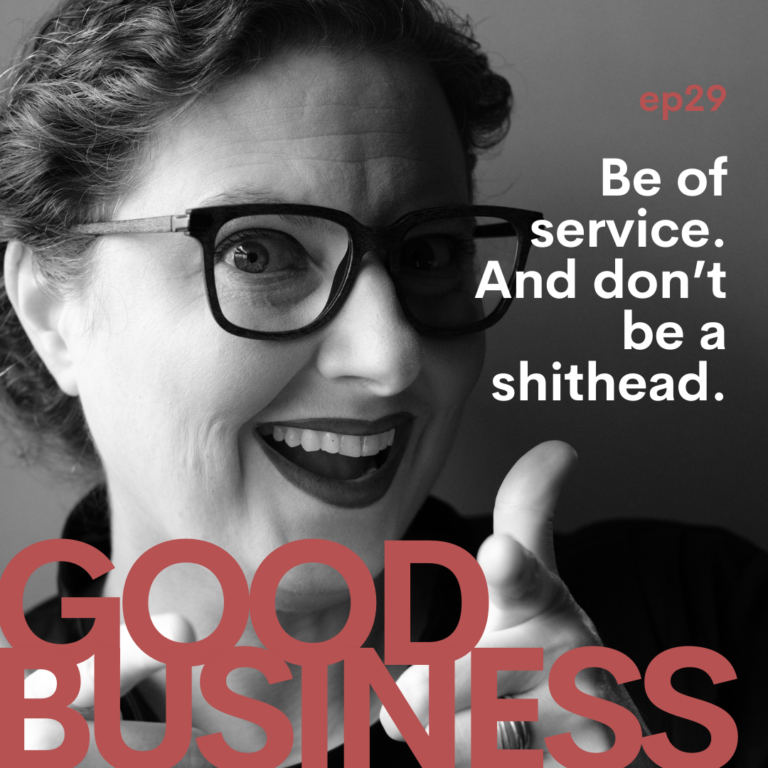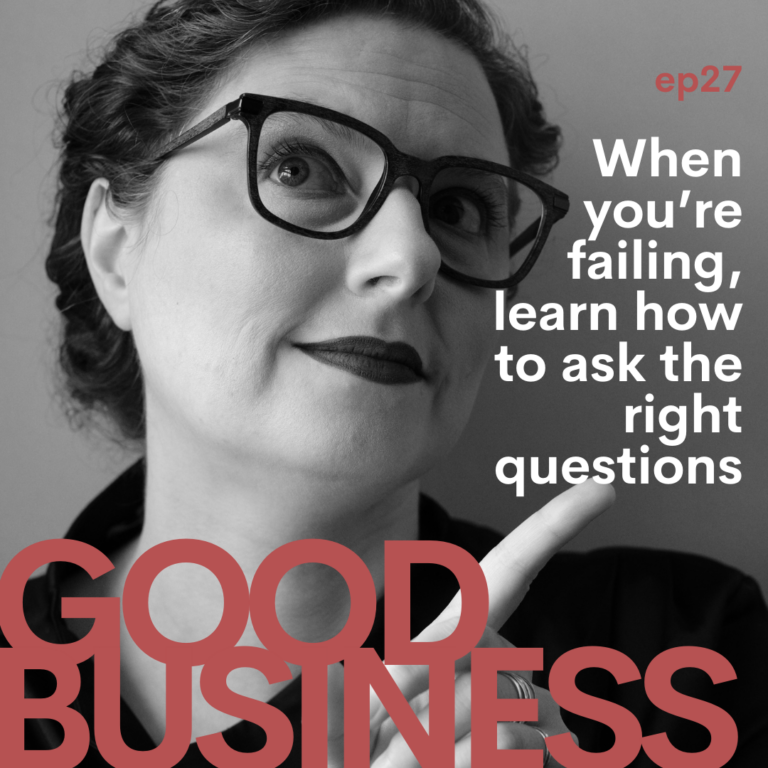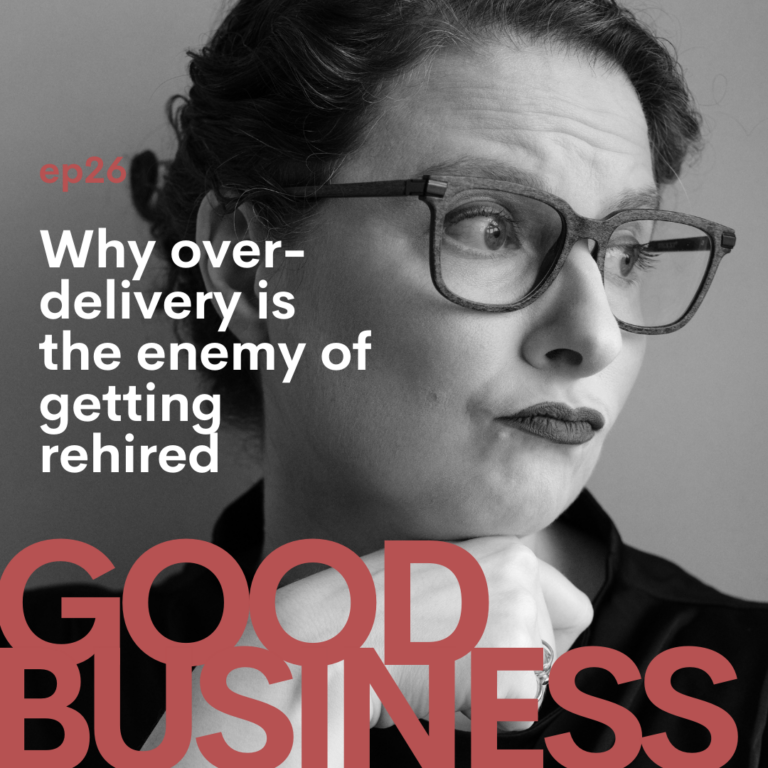Are you wondering if you should quit? Keeping the focus on non-client business initiatives (because knowing when to quit a client project is a whole other series), this episode teaches a methodology including 4 key questions to help you evaluate when to stick with something or let it go. Learn how to identify your motivations, confront self-doubt, and make decisions that align with your goals and values.
[NOTE: The text below was generated with the help of AI. I do not advocate for the use of AI in copywriting in general, but see it as a useful tool for improving efficient editing of my own creative content. None of the actual content of the episode or the transcript was AI-generated. I just let the computer help me clean up the text so it can be more easily understood and consumed. ~i.]
Reaching a Milestone and Reframing Quitting
This episode marks the 60th of the podcast, a surprising milestone considering most podcasts fizzle out around episode 10. Illana celebrates this achievement and uses it to introduce the core theme: deciding when to stick with something or when to quit.
While societal pressure often pushes us to “finish everything,” quitting can be a valuable strategy. Illana references a previous episode exploring this concept and shares personal experiences with quitting.
Focus: Non-Client Business Initiatives
It’s important to clarify the specific context of this episode: evaluating when to quit non-client-related business initiatives. These are projects you undertake to promote yourself or your work, not projects directly tied to clients. Examples include unfinished books, podcasts with low listenership, or sporadic blog posts.
4 Core Questions for Evaluation
Illana outlines four key questions to guide your decision-making process:
-
Why did you start and what was the desired outcome? Aim for at least two areas of satisfaction (e.g., personal growth, financial gain) connected to your desired outcome. Having multiple areas of satisfaction provides better motivation during challenging phases. Consider aiming for three to four areas for increased resilience.
-
Why do you want to quit or stay? Be honest with yourself and verbalize your reasons. This can help identify underlying fears and self-doubt disguised as logical justifications. While fear and self-doubt are valid reasons to quit if overwhelming and detrimental to your mental health, self-awareness is crucial to avoid future regrets and starting new things. Illana offers guidance on how to constructively manage these emotions to learn and grow.
-
What are the tangible and intangible upsides of both options? Disregard the downsides for this exercise as they can be misleading and hinder clear decision-making. Instead, focus on identifying and comparing the upsides of quitting and staying. The list you find more appealing can offer valuable insights.
-
What do you actually want next in this area of your life? This straightforward question asks whether your progress aligns with your desired future. Even small progress can be significant if it leads towards your goals. Ultimately, continuing aligns with your initial desires and progress, while quitting signifies a misalignment.
Thanks for listening!
More Episodes
Why you shouldn’t start a membership site | GB31
Today's episode is all about how to look a little closer at the ever-growing trend of membership sites all over the place and how to know if you should jump on the bandwagon or not. Episode Transcript: I'm Illana Burk, CEO of...
Four not shocking disappointments in a time of crisis | GB30
Today’s episode is about the simple idea that your business exists not just to support you and your stakeholders, but to support your community.
Be of service and don’t be a sh*thead | GB29
Today's episode is all about how to not be a jerk in the middle of a crisis. Episode Transcript: I'm Illana Burk, CEO of Your Life's Workshop, coach to entrepreneurs and solopreneurs across dozens of industries and host of Good...
Avoid the piles of bricks | GB28
Today, we talk all about that craptastic feeling of being buried. Underwater. Crushed by the weight of big ideas, neverending task lists, and elephant-sized goals. First, we’ll talk about what this really means and the ways in which this feeling tends to show up, along with a little on how we tend to behave as a result. Then we’ll talk about a simple way to handle these moments better. And finally, we’ll wrap up with a healthy pep talk.
When you’re failing, learn how to ask the right questions | GB27
Today’s episode is all about how to not shoot yourself in the foot right out the gate. I’m gonna break down one very common mistake that newbies (and non-newbies) make and how to fix it. Today, we learn how to ask for help and guidance in a way that doesn’t completely fuck up your chances of getting what you ACTUALLY need, which is respect.
Why overdelivery is the enemy of getting rehired | GB26
Today’s episode is all about why over-delivering is a really good way to not get asked back for more work. We all think doing our best and giving more than people asked for is a good thing. And in some ways, it is. Things like adding extra value to something you do is fine. What I’m talking about is when you completely blow the scope of what was asked of you out of the water. It’s one of the hardest things to identify when you’re trying to figure out why no one seems to hire you twice.






